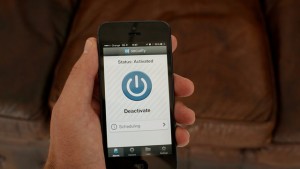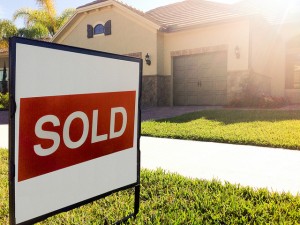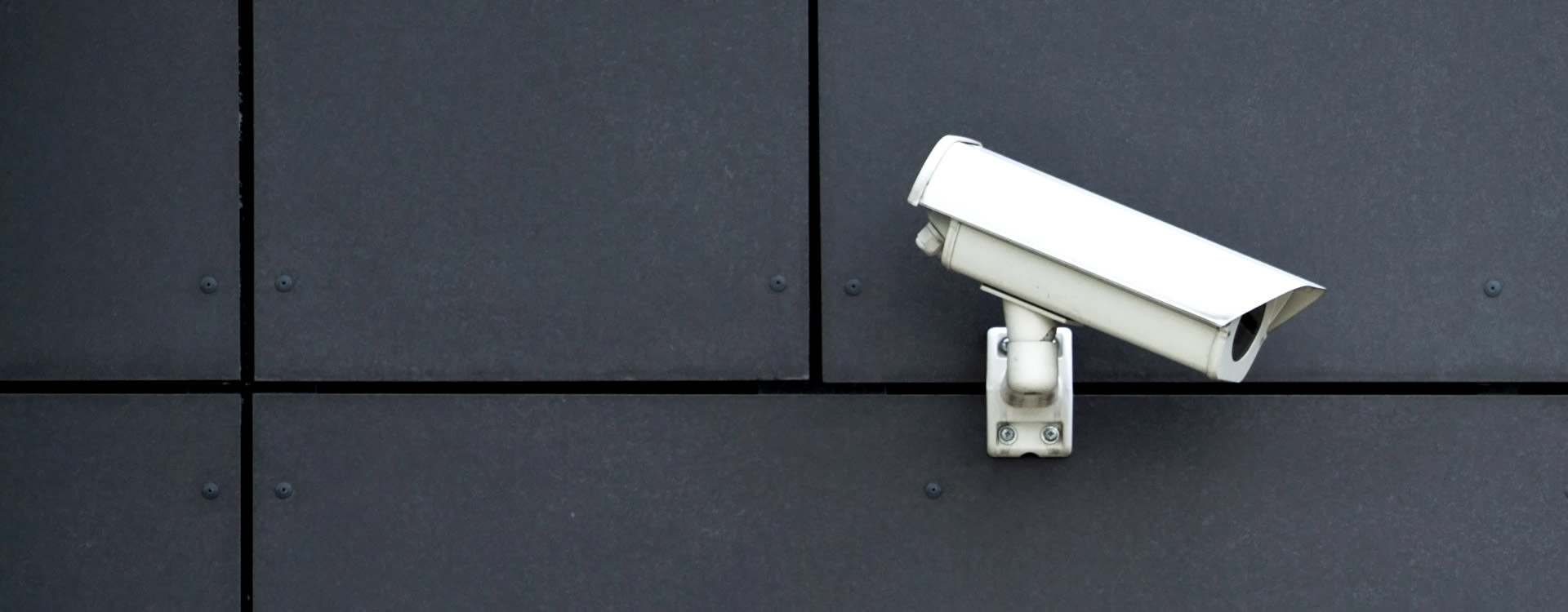 Home renovation is an exciting and fulfilling prospect for many homeowners. Whether you’re adding on or adjusting an existing space it’s imperative to make sure your home is protected during the process. While renovating your home is rewarding for you and your family, you don’t want it to be a “rewarding” process for would-be thieves and criminals. Our experts here at Perfect Connections, Inc. understand protecting your home is a top priority, especially during a renovation when it is more vulnerable. We’ve been providing security system solutions to northern and central New Jersey homes since 1992. If you are renovating and considering a home security system or adding on to an existing one don’t hesitate to call on our professionals. Having a security systems expert involved from the get-go is essential for seamless integration and full protection. We understand the renovation process can be dubious at times, the following tips can help remove some of the hassle and uncertainty.
Home renovation is an exciting and fulfilling prospect for many homeowners. Whether you’re adding on or adjusting an existing space it’s imperative to make sure your home is protected during the process. While renovating your home is rewarding for you and your family, you don’t want it to be a “rewarding” process for would-be thieves and criminals. Our experts here at Perfect Connections, Inc. understand protecting your home is a top priority, especially during a renovation when it is more vulnerable. We’ve been providing security system solutions to northern and central New Jersey homes since 1992. If you are renovating and considering a home security system or adding on to an existing one don’t hesitate to call on our professionals. Having a security systems expert involved from the get-go is essential for seamless integration and full protection. We understand the renovation process can be dubious at times, the following tips can help remove some of the hassle and uncertainty.
Hiring the right contractor
When it comes to your home and family you can never be too careful. You wouldn’t hire a babysitter without doing your research first, the same holds true for finding the right contractor. A background check is a great way to tell whether or not the company you want to hire is reputable or not. Here’s the caveat, companies with bad reputations or failed business sometimes shut down and reopen under a new name (ACE Private Risk Services). So how can you really be sure of who you’re hiring? In many cases architects are involved in the renovation process, they should have good insight into which companies are trustworthy. Ask your friends and family for referrals. Use websites like Angie’s List to find out what other customers think about the contractor you’re interested in hiring. Gain as much knowledge about the company/ies of interest before making a final decision.
When signing a contract be sure it delineates who is responsible for what and that the associated cost makes sense. Sometimes contractors will low-ball the contract price and try to add cost later, blaming it on “unexpected” issues. Ask the contractor directly for a review of their past or most current jobs, those with nothing to hide should be more than happy to abide. After all it’s your home, you want it done right. It is also important from a liability standpoint to be sure the contractor has insurance for his/her self and their workers, you don’t want to incur the cost of someone being injured on the job.
Utilize existing security features
If you have an existing security system in your home, use it to keep an eye on the renovation process. Having remote monitoring access through your video surveillance system will allow you to check-in on your home while you’re away at work or can’t be there. While you’re not out to purposefully incarcerate or accuse the people working on your home of being lazy, trying to rip you off, or stealing it is in your best interest to protect your property. Many, if not most, contractors are reputable and diligent in their work, but nobody is perfect and unfortunately there are companies that do try to take advantage.
Take for example this story of a homeowner who was having the exterior caulking on his windows reinforced. The hired contractor had quoted him for 8 hours of work. The homeowner set up a wireless camera to monitor activity outside his home for when the contractor was scheduled to be working. He was able to see when the contractor arrived, and the hours he spent sitting in his truck NOT performing the agreed upon work. Ultimately, the contractor performed only 5 of the quoted 8 hours of work. When the contractor was paid for the 5 hours he couldn’t dispute it as the homeowner had irrefutable evidence (story courtesy of iWatchLife.com). Negative experiences aside, monitoring your home during construction can also validate the expertise a contractor has, giving you incentive to recommend them in the future.
In all likelihood if you have an existing security system, you’ll be adding on to it in the new space or at least altering it during the renovation process. Including your security system provider from the beginning is a beneficial tactic. If you have a hardwired security system, what better time to include the security provider than when the walls are already open? It will save you from the cost of having to tear them open after the fact. Plus, your security expert/s can address your concerns before construction starts and openly communicate with the other professionals involved. Having that dialogue between the different professional services from the start will create a smoother and more productive process.
Securing the job site
Aside from hiring the right people to complete the job, you want to make sure the job site is adequately secured. One of the most basic, yet often forgotten or disregarded ways to help prevent damage or loss is to lock your doors and windows. While it may not stop someone from breaking in, it will certainly slow them down. This will help control who has access to various parts of your home during the construction process as well.
Alert your security system provider of your upcoming changes, they’ll likely have suggestions on how to protect the exposed portions of your home. Like preventing fire damage by installing temporary smoke detectors and fire extinguishers. Confirm with your security system provider that your current fire alarm system will still function throughout the duration of the project. Even having your security systems expert install additional, maybe temporary, surveillance equipment will help you keep an eye on what’s going on.
Keeping the job site clean and free of unnecessary debris should be part of the construction crew’s responsibility; it makes for a safer work environment and lessens the potential of property damage and injury. It also helps prevent damage to products being used in the renovated space. You don’t want to get charged for parts your own construction crew broke, right?
It can be easy to get caught up in the excitement of a home renovation project, but don’t let that be a reason to let your guard down. Keep your home and family safe by doing your research and maintaining security. Our team of experts at Perfect Connections, Inc. understand the value in protecting your home no matter what. We have been providing comprehensive security solutions to residences in central and northern New Jersey for over 20 years. Whatever you have going on, whether it’s a small renovation or substantial addition, don’t hesitate to call on our specialists for a security assessment. You’ll be setting yourself up for success!
If you live or run a business in Central or Northern New Jersey and would like information on any of the topics discussed above, please call 800-369-3962 or simply CLICK HERE.




 When you think motion detectors (or sensors) you might picture a heist scene from the movies where a thief has to perform acrobatics in order to avoid a web of alarm triggering laser-beams surrounding a priceless gem. While that narrative is not necessarily complete fiction, it’s not exactly how motion detection is implemented in the real world. In modern day applications security system integrators use motion detectors to sense unwarranted movement within or outside of a home or facility. Motion detectors are typically implemented as an essential part of a comprehensive security system meant to help detect an intruder. There are different types of detectors and their applications are not necessarily synonymous.
When you think motion detectors (or sensors) you might picture a heist scene from the movies where a thief has to perform acrobatics in order to avoid a web of alarm triggering laser-beams surrounding a priceless gem. While that narrative is not necessarily complete fiction, it’s not exactly how motion detection is implemented in the real world. In modern day applications security system integrators use motion detectors to sense unwarranted movement within or outside of a home or facility. Motion detectors are typically implemented as an essential part of a comprehensive security system meant to help detect an intruder. There are different types of detectors and their applications are not necessarily synonymous. So you’ve had home security system installed, everything is connected and ready to be armed. During the process did you sign up for an alarm monitoring service? If you didn’t, you’re missing a vital part of a truly comprehensive home security system. You could be leaving yourself open to risk regardless of your newly installed system. While having a security system will greatly lessen the risk of a break-in and provide you with a peace of mind, the caveat is what happens if you’re not home when the alarm goes off? Maybe you have a super vigilant neighbor that would hear the alarm or see a fire blazing, but you shouldn’t rely on that. At
So you’ve had home security system installed, everything is connected and ready to be armed. During the process did you sign up for an alarm monitoring service? If you didn’t, you’re missing a vital part of a truly comprehensive home security system. You could be leaving yourself open to risk regardless of your newly installed system. While having a security system will greatly lessen the risk of a break-in and provide you with a peace of mind, the caveat is what happens if you’re not home when the alarm goes off? Maybe you have a super vigilant neighbor that would hear the alarm or see a fire blazing, but you shouldn’t rely on that. At  When you’re a homeowner one of your top priorities is ensuring the safety of your home. Your home is what protects you and your family. Nobody wants to deal with a home break-in but they are a sad reality in our everyday lives. Fortunately there are many ways you can safeguard your home from such devastation. The best way to deter crime is to be prepared for it. If you want to prevent a home invasion you must first understand how and when burglars are likely to attempt them. At
When you’re a homeowner one of your top priorities is ensuring the safety of your home. Your home is what protects you and your family. Nobody wants to deal with a home break-in but they are a sad reality in our everyday lives. Fortunately there are many ways you can safeguard your home from such devastation. The best way to deter crime is to be prepared for it. If you want to prevent a home invasion you must first understand how and when burglars are likely to attempt them. At  House fires. Nobody wants to think about them, but they are an unfortunate reality in our imperfect world. While a house fire can be unpredictable there are precautionary measures you can take to avoid them. Being prepared is half the battle, but knowing what to do in the event of a fire is equally important.
House fires. Nobody wants to think about them, but they are an unfortunate reality in our imperfect world. While a house fire can be unpredictable there are precautionary measures you can take to avoid them. Being prepared is half the battle, but knowing what to do in the event of a fire is equally important.